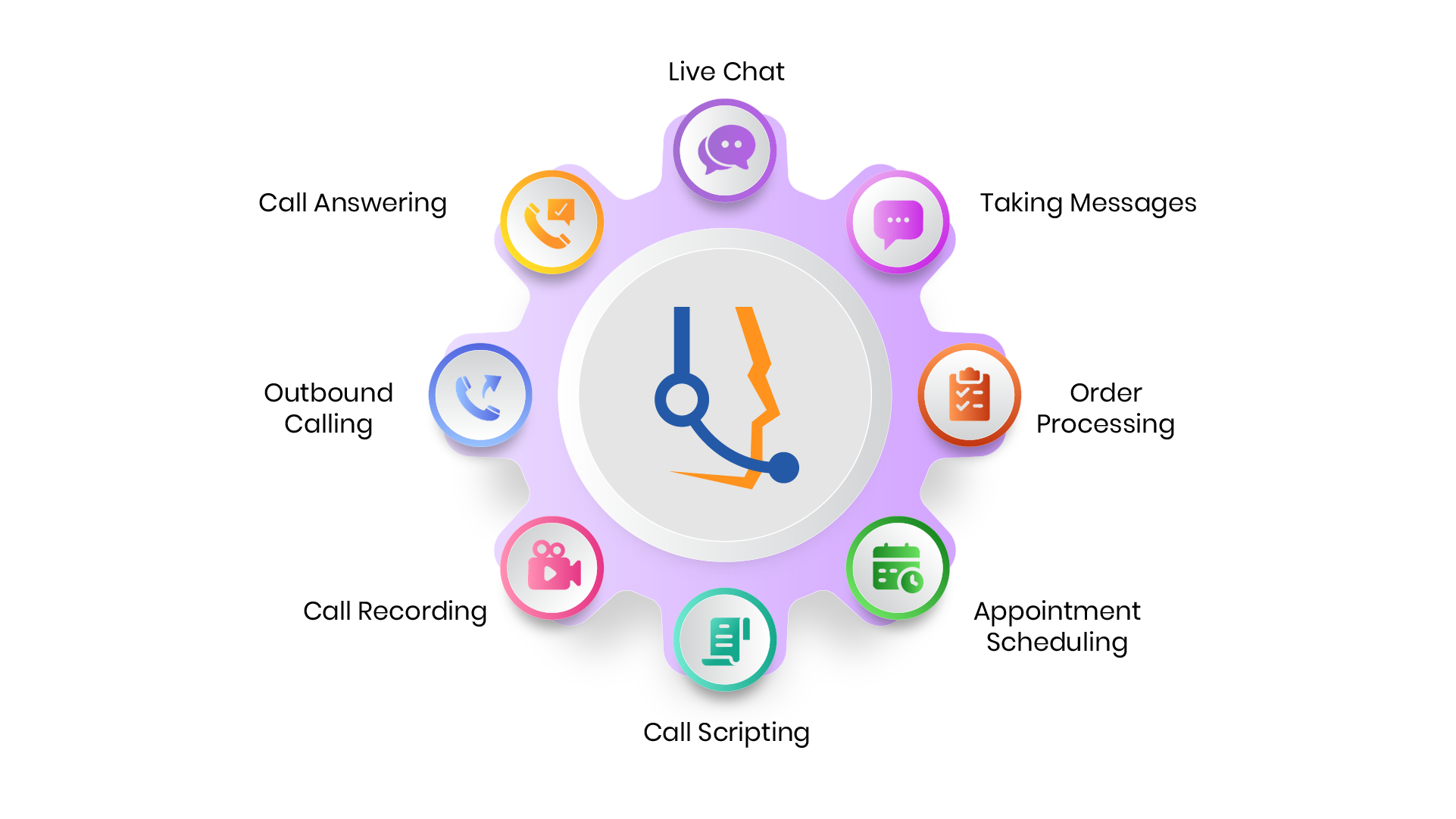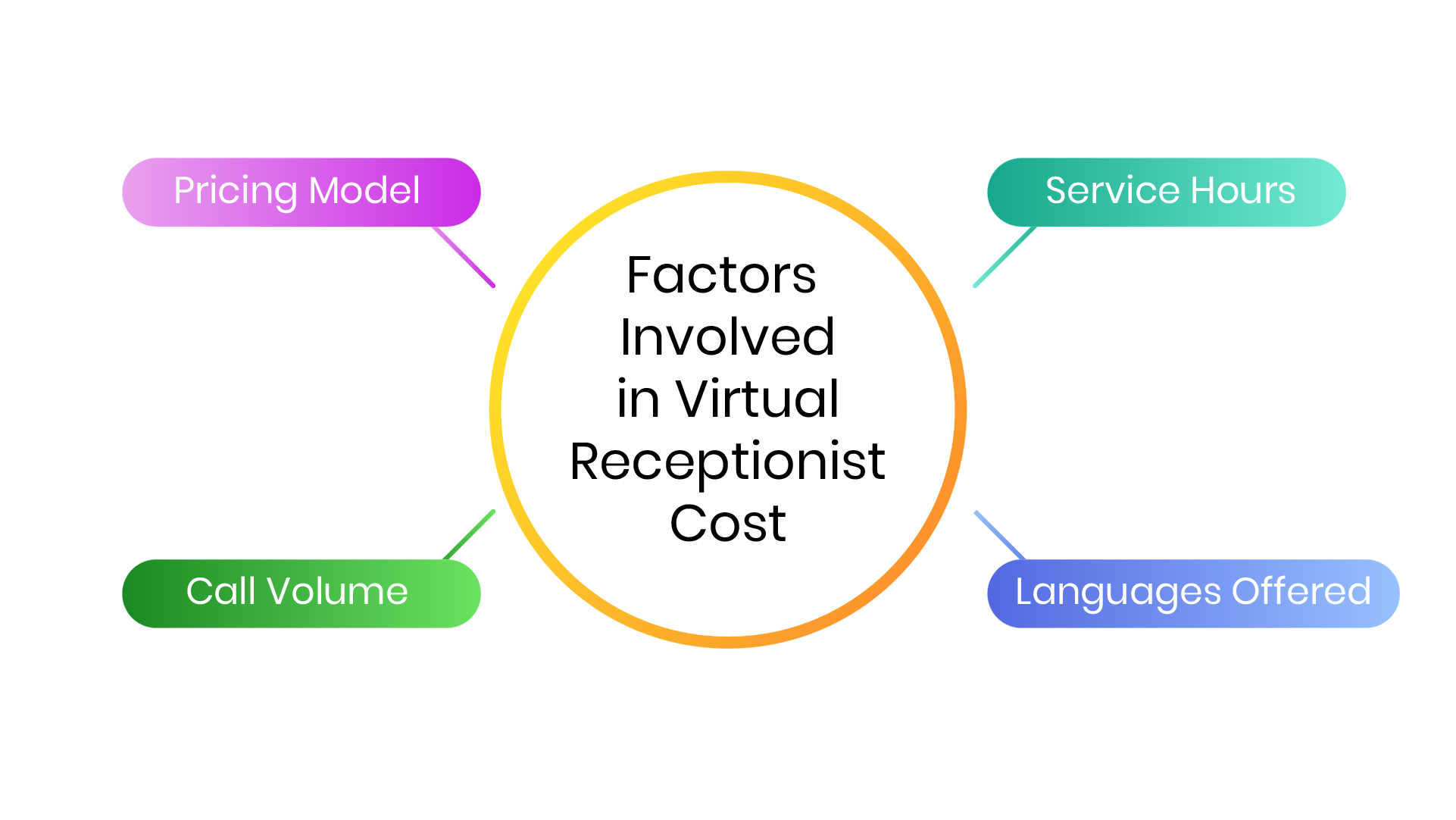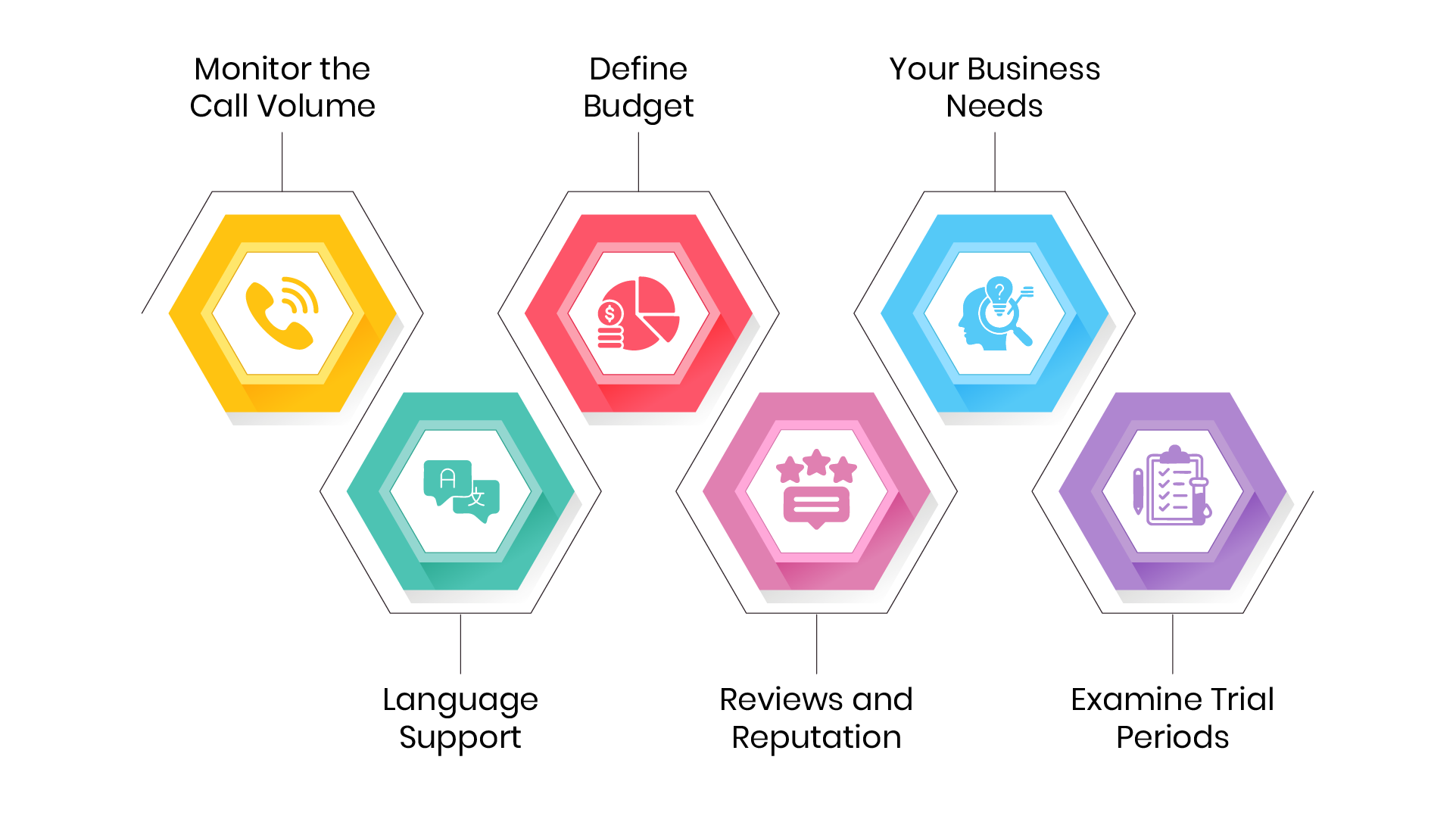
How Much Does a Virtual Receptionist Cost? Factors Involved in Pricing
It's a developed concept that virtual resources are beneficial for work and extremely affordable compared to in-house employees. Specifically for small businesses or the type of companies that are already working online or in a remote setting. This is the reason why virtual receptionists' cost is also calculated on different factors, which makes remote settings suitable for most companies and businesses.
From call handling, scheduling appointments, correspondence with customer queries, and much more—all without the need for a physical presence.
But as more businesses explore this solution, one of the most common questions is: “How much does a virtual receptionist cost?”
This comprehensive guide breaks down the costs, what influences pricing, what services are typically included, and how to choose the right provider for your needs.
What is a Virtual Receptionist?
A virtual receptionist is a remote professional responsible for the front desk tasks. These major tasks include answering phone calls, greeting clients (remotely), managing appointments and handling live chats also emails. There is a new wave of AI virtual receptionists but usually, companies prefer human receptionists.
Why Businesses are Adopting the Remote Receptionist Module?
The reason that most businesses prefer going for the virtual receptionist mode is that they not only reduce the operational costs, but also improve customer service, and maintain a professional image. Especially if they don’t have the budget or space for an in-house receptionist.
Types of Virtual Receptionist Services
Understanding the different types of services can help you anticipate costs better:
1. Live Virtual Receptionists
These are real humans who answer calls and manage tasks during business hours. They provide a personalized experience and can adapt to customer tone and sentiment.
2. AI or Automated Receptionists
AI bot receptionist can direct calls, provide responses, or collect information. While cheaper, they lack the warmth of human interaction.
3. Blended Services
Some providers offer a mix of live receptionists and automation, striking a balance between cost efficiency and customer experience.

Pricing of Services Given By Virtual Receptionist
In this blog post, we’ll walk you through what you can expect to pay for a virtual receptionist, which pricing models are available, and what factors can increase or decrease the cost. Whether you’re a startup or a growing company, understanding these costs will help you make the best decision for your business.
Virtual receptionists do much more than just answer calls. Their services can include outbound calling, appointment scheduling, message taking, and even live chat support. Here are the common services and their average costs:
1. Call Answering
This is the most basic and essential service offered by virtual receptionists. Providers charge a basic monthly subscription and you can have the custom packages as well. These services typically include greeting callers, directing them, and providing general information about your business.
2. Outbound Calling
This involves the receptionist making calls to clients, often for reminders, follow-ups, or promotions. Outbound calling services cost start from $20 per hour. Some companies offer discounted hourly rates for bulk service plans.
3. Call Recording
Call recording is often bundled with other services but can cost around $1 per minute if charged separately and some companies add this into the customized package. It’s a helpful tool for reviewing calls and improving customer service.
4. Call Scripting
With call scripting, your receptionist follows a pre-set script for consistent, professional responses. This service ranges from $15 to more than $100 per month, depending upon the company and the complexity of tasks and is especially useful for companies in regulated industries.
5. Appointment Scheduling
Many businesses use virtual receptionists to manage their calendars. Expect to pay a minimum of $3 per appointment scheduled. This feature improves efficiency and ensures you never miss a booking.
6. Order Processing
For eCommerce or product-based businesses, order processing is key. The virtual receptionist cost will be up to 100$ per month for handling this task, depending on the complexity of your sales process.
7. Taking Messages
If your virtual receptionist needs to take and deliver messages, the service usually costs an additional. They can also schedule callbacks or follow-ups on your behalf.
8. Live Chat
Live chat is a popular add-on, especially for websites. It provides 24/7 customer service and costs starting from $100–$150 monthly, depending on the level of coverage and number of chats handled.
 Factors Involved in Virtual Receptionist Cost
Factors Involved in Virtual Receptionist Cost
The cost of a virtual receptionist can vary based on several key factors:
1. Pricing Model
Following is an estimation of the virtual assistant costing, and how most providers calculate the invoice: Most providers offer one of the following:
- Per Minute Billing: You’re charged for each minute the receptionist is engaged with a customer. You can also make a package if your selected company offers it.
- Per Call Billing: You’re charged per call handled, regardless of duration. Expect to pay $0.75 to $1.25 per call, depending on the complexity.
- Monthly Plans: Fixed packages based on the number of minutes, calls, or features, often ranging between $100 to $1,000+ per month.
2. Service Hours
- Business Hours / After Hours: This is pretty noticeable that business hours are different in different regions so there is a set of 9 hours to 12 hours shifts. This is completely the decision between the client and the provider. As far as the availability factor on the cost is concerned, again it's a mutual decision of the company and the clients.
- 24/7 Availability: Premium pricing due to after-hours coverage is usually more expensive. The reason is that resources used are more even if it's flexible.
3. Call Volume & Language Options
High call volumes typically increase costs but may unlock discounted pricing tiers. Bilingual or multilingual support (especially English and Spanish) may cost more.
 Who Should Use a Virtual Receptionist?
Who Should Use a Virtual Receptionist?
A virtual receptionist can be a game-changer for businesses looking to maintain professionalism, streamline communication, and enhance customer experience—without the overhead of hiring full-time staff. But who benefits the most from this service? Let’s break it down.
Startups and Small Businesses
New and small businesses often operate with limited resources. Hiring a full-time receptionist may not be financially feasible, yet every missed call could mean a lost client or opportunity. A virtual receptionist provides these businesses with a cost-effective solution, offering professional call handling, appointment scheduling, and message taking—all of which help present a polished, credible image to clients and investors.
Solo Entrepreneurs
Running a business solo means wearing many hats—sales, marketing, customer service, and operations. With so much going on, it’s easy to miss calls, especially during meetings or outside business hours. A virtual receptionist ensures that solo entrepreneurs never miss a lead or important call, helping maintain responsiveness and build strong client relationships.
Medical Practices
We know that medical centres from clinics to hospitals along with urgent care centres require constant connection with the patients. They need to have the proper medical front desk 24/7. This is the reason why having a receptionist remotely is essential.
Law Firms
Law firms need to have virtual receptionists, who can take notes from the clients. This makes the law firms available as where as the details are given in detail for further analysis.
Real Estate Agents, Consultants, and Coaches
Professionals who spend most of their time in the field or in client sessions often can’t be by their phones. A virtual receptionist for realtors or consultants bridges this gap by handling inquiries, setting appointments, and even answering FAQs. This ensures no opportunity slips through the cracks and helps these professionals appear organized and responsive—qualities that build trust with clients.
Ecommerce And Service-Based Businesses
For online retailers and service providers, customer inquiries can come in 24/7. Whether it’s tracking orders, handling complaints, or answering service questions, a virtual receptionist ensures quick responses and smooth communication. This is especially valuable during peak seasons or after-hours, giving small teams the support they need to deliver excellent service without burnout.
 How to Choose the Right Virtual Receptionist Provider
How to Choose the Right Virtual Receptionist Provider
Before choosing a provider, consider:
1. Monitor the Call Volume
Track average call minutes or call counts per month to choose the right tier.
2. Define Budget
Decide whether you prefer pay-as-you-go or fixed monthly pricing.
3. Your Business Needs
Do you need someone to just take messages, or do you need lead qualification, CRM integration, and appointment booking?
4. Language Support
If your clientele is diverse, ensure the service includes multilingual receptionists.
5. Reviews and Reputation
Check online reviews on platforms like G2, Capterra, and Trustpilot.
6. Examine Trial Periods
Many providers offer a free trial or satisfaction guarantee. Take advantage of this to test services before committing.
Are There Any Hidden Fees?
Always check for:
- If there is a setup fee or everything is included.
- Overages; beyond your minutes/call limits defined by the time of onboarding can cause you more.
- If you want after-hour services but it's not included in the budget then it is gonna charge more.
- Need to review the invoice and see what addons can be required afterwards because these are not included in the basic package. Either you can include them or pay separately once you decide to avail.
*Clarify what’s included to avoid billing surprises.
Cost Optimization Tips
To get the most from your virtual receptionist budget:
- Bundle services: Choose providers that offer CRM, scheduling, and call routing in one plan.
- Monitor usage: Review monthly usage reports to stay within limits.
- Use call screening: Have receptionists filter out spam or low-priority calls.
- Set call scripts: Improve call efficiency with tailored scripts and FAQs.
- Use blended automation: Combine AI for basic tasks with human agents for complex calls.
Final Thoughts: Factors Involved In Costing
We understand that there are many businesses that require frequent connection with the clients. Thus if they start missing the calls, eventually they will miss the leads and due to the time or the cost issue they are unable to hire an in-office resource. A virtual receptionist can offer a high return on investment if you use their specialities properly.
While the virtual receptionist cost varies, most businesses find that virtual receptionist services save time, improve customer experience, and cost a fraction of hiring in-house help. Whether you’re a solopreneur or scaling fast, the flexibility and professionalism offered by virtual receptionists make them a smart investment.
Leave A Reply
Your email address will not be published. Required fields are marked *


